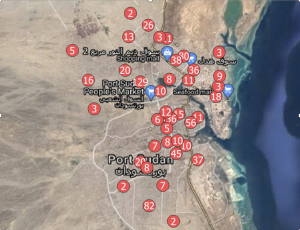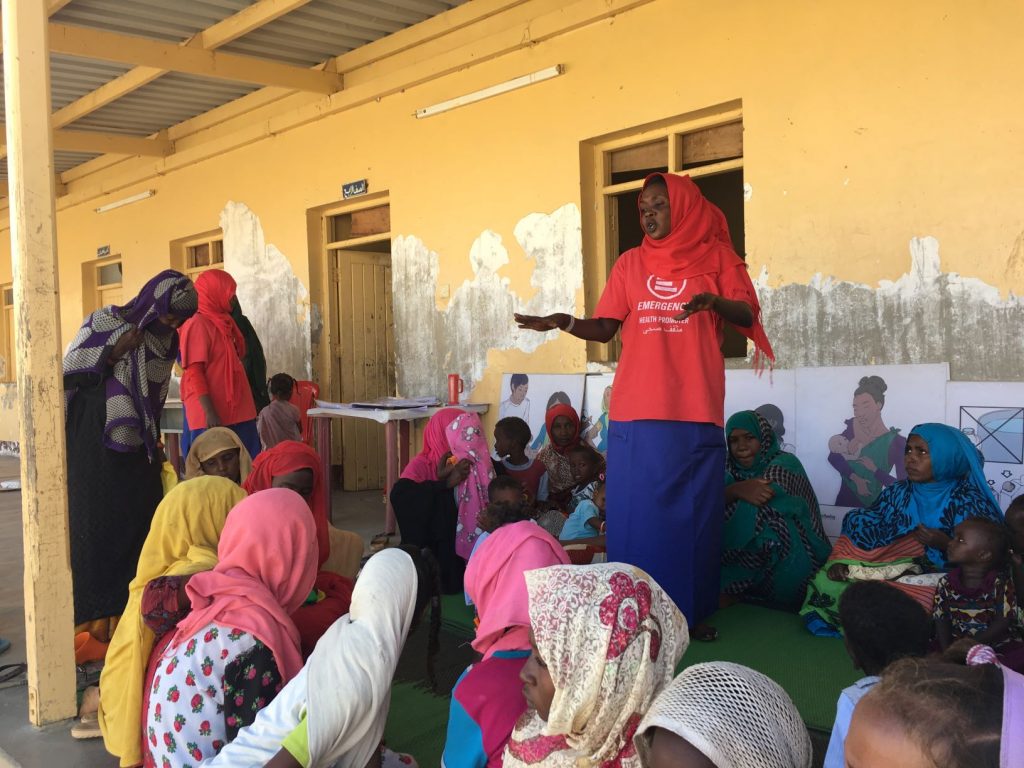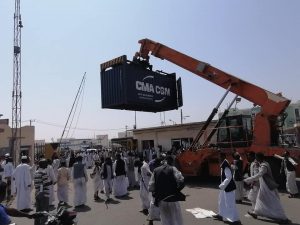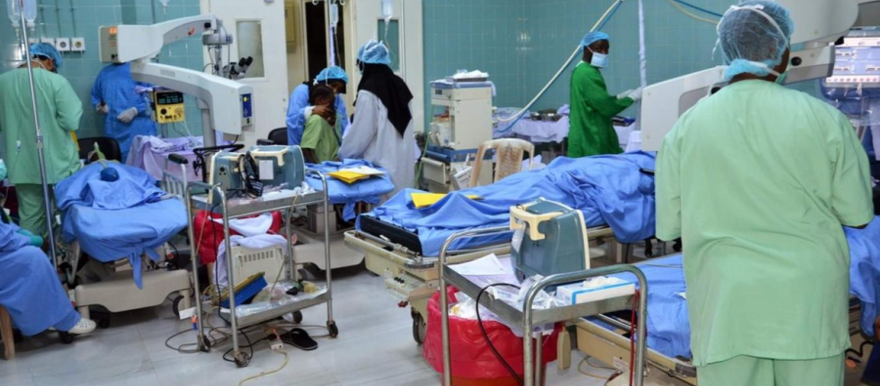Cautious optimism in Port Sudan as spike in Covid-19 cases wanes
3 August 2021
The number of registered Covid-19 cases in Port Sudan, Red Seat State, declined in late July, says Dr. Alam al-Huda Abu-Keleb, Director of the Quarantine Administration and Epidemics Control Unit in the Federal Ministry. From mid-June into the third week of July this year, citizens of Port Sudan were burying 40 – 50 of their loved ones daily due to the pandemic. This figure decreased by nearly a half in the past week.

According to an official document obtained by Ayin, Red Sea State registered 2,608 cases of covid-19 since the start of the pandemic, with most cases affecting people over 45 years of age.
Dr. Alam al-Huda believes an increase in covid-19 vaccinations in Port Sudan helped significantly in reducing numbers with 8,000 civilians receiving the vaccines after the Eid holiday. Red Sea State received 30.000 doses of the Chinese “Sinopharm” vaccine since the recent increase in cases, Dr. Alam al-Huda said, along with an increase in oxygen cylinders and other covid-19 treatment medicines and related supplements. Governmental efforts were also concentrated in assuring the efficiency of health centers and medical staff, as well as raising social awareness.
Fear of the Delta variant
The director of the epidemics control office told Ayin that despite the spread of the Delta covid-19 variant globally, it is still not confirmed in Sudan. “We have sent samples for testing to Nairobi, not only to confirm the possibility of the Delta variant but also to know if all the deaths and infections are related to covid-19.” As the Red Sea state is familiar with other types of epidemics – such as dengue and hemorrhagic fever – the government wants to be certain. One confirmed case of dengue fever, for instance, was identified in the port city Suakin, the State Head of Prophylaxis Medicine, Dr. Amna Globay said.
“The covid-19 cases are not as worrying as the rise in death rates compared to last year, but unfortunately we don’t have accurate figures as many went unregistered”, Dr. Alam al-Huda explained. In many cases, corona patients in Red Sea State have died and were buried at home without any notice to authorities, making medical research all the more challenging. Authorities are considering implementing a ban on burial without permits until further notice.
Dr. Sara Ahmed, a physician at Port’s Authority Hospital says there is a difference in symptoms in the recent covid-19 cases, but until they get the test results, there is no way to confirm whether it is the Delta variant or not. Poor equipment and long work hours for medical staff further stifle their research work. “We are underpaid, lack equipment and medical supplies, and those of us coming from other states are in need of proper housing,” she said. The work environment and lack of staff make it hard to operate efficiently, the physician added.

Al-Amin Sinada, a journalist native to the area told Ayin that civil society played a big role in combating the outbreak and that even though the health system in the country needs lots of work, the government and public efforts made to address the crisis were notable.
“The general directory of health implemented a vaccination campaign with seven centers in Port Sudan, in addition to mobile teams for vaccination and planning to start a door-to-door campaign,” Sinada said. “The community has also become more aware of the importance of social distancing and following the instructions.” But there is still a rise in covid cases outside of Port Sudan that needs immediate attention, he added.
Sinada thinks that the recent conflicts taking place within the state have also contributed to the deteriorating health conditions. Repeated cases of violence have led to a high number of crowded, injured patients within hospitals, Sinada said, where maintaining social distancing proved impossible. “There was also a refusal to take vaccines by some members of the public, even among the medical staff, but since last month, people are beginning to understand the importance of it and encourage to take the vaccine.”
The state’s government implemented a two weeks’ state of emergency on 12 July that included a partial curfew, a lockdown for public venues and markets, banning gatherings, and running institutions with only 50% of the staff. Authorities plan to extend these emergency measures.
Ayin viewed a proposal made by the Federal Ministry of Health for a two-week state lockdown, from 24 July to 7 August, that includes a complete lockdown of the state. This proposal, however, is yet to be enacted.

Still not out of the woods
Ali Omer *, a Port Sudan resident, believes the poor health facilities within the city and the constant flow of people in and outside of the city may ensure covid-19 levels remain high. “I think this outbreak reveals the fragility of our health system,” he said, “there’s an urgent need to address this issue, in addition to aiding medical staff in carrying out their duties by providing them a suitable work environment.”
Dr. Globay told Ayin that many Port Sudan residents leave the city in the summer for the small town of Sinkat and other places within the state to avoid the summer period’s hot coastal weather – creating a further risk of the virus spreading.
Omer added that there are many people in the state who oppose the vaccine, which should be handled by more awareness-raising efforts.
While many within the state are not informed about the vaccines, others attach social stigma around covid-19 infections, Sinada said. Some communities are unwilling to come forward about covid-related conditions, making it difficult for health officials to track and contain the pandemic. Informing the public, Sinada said, is crucial. “We are trying to reach people via mass media. Social work is our biggest challenge so far.”
Dr. Globay explained that the government of the Red Sea state is working with its full capacity in addressing the issue. “All medical staff is in a state of readiness, and the designated emergency committee is holding a daily meeting regarding the situation in the state, in addition to convening with other involved partners.”
* Not his real name, the source preferred to remain anonymous


